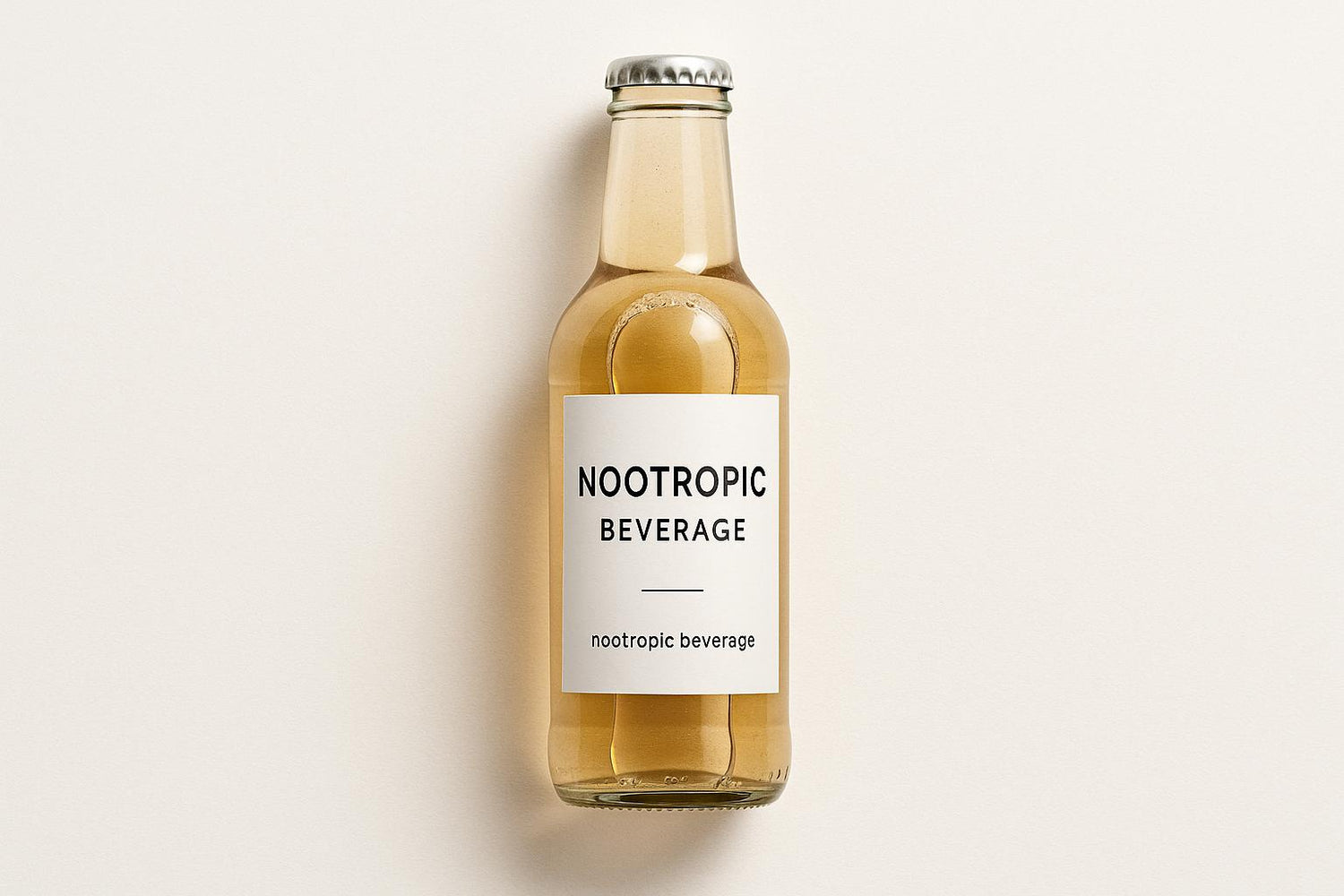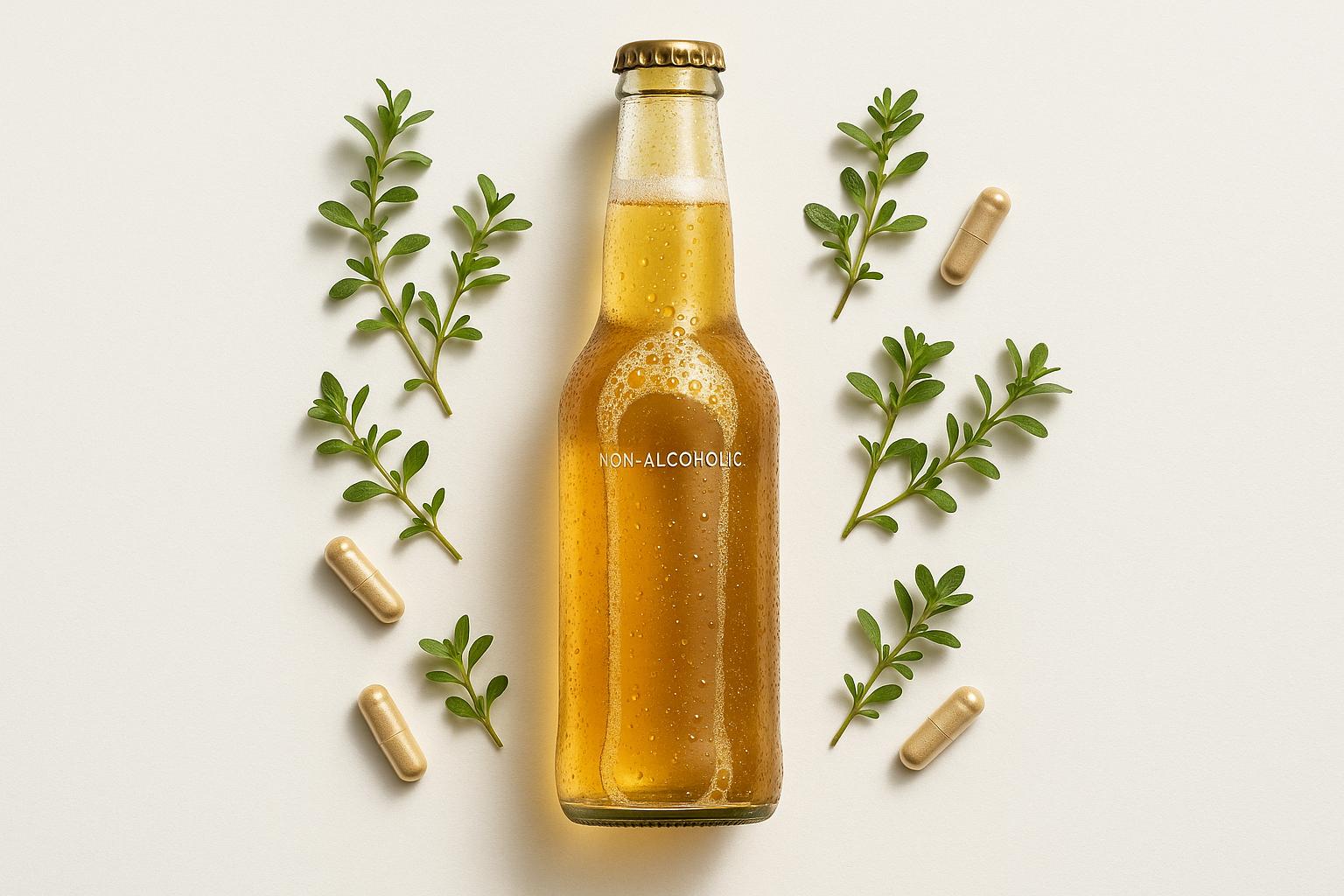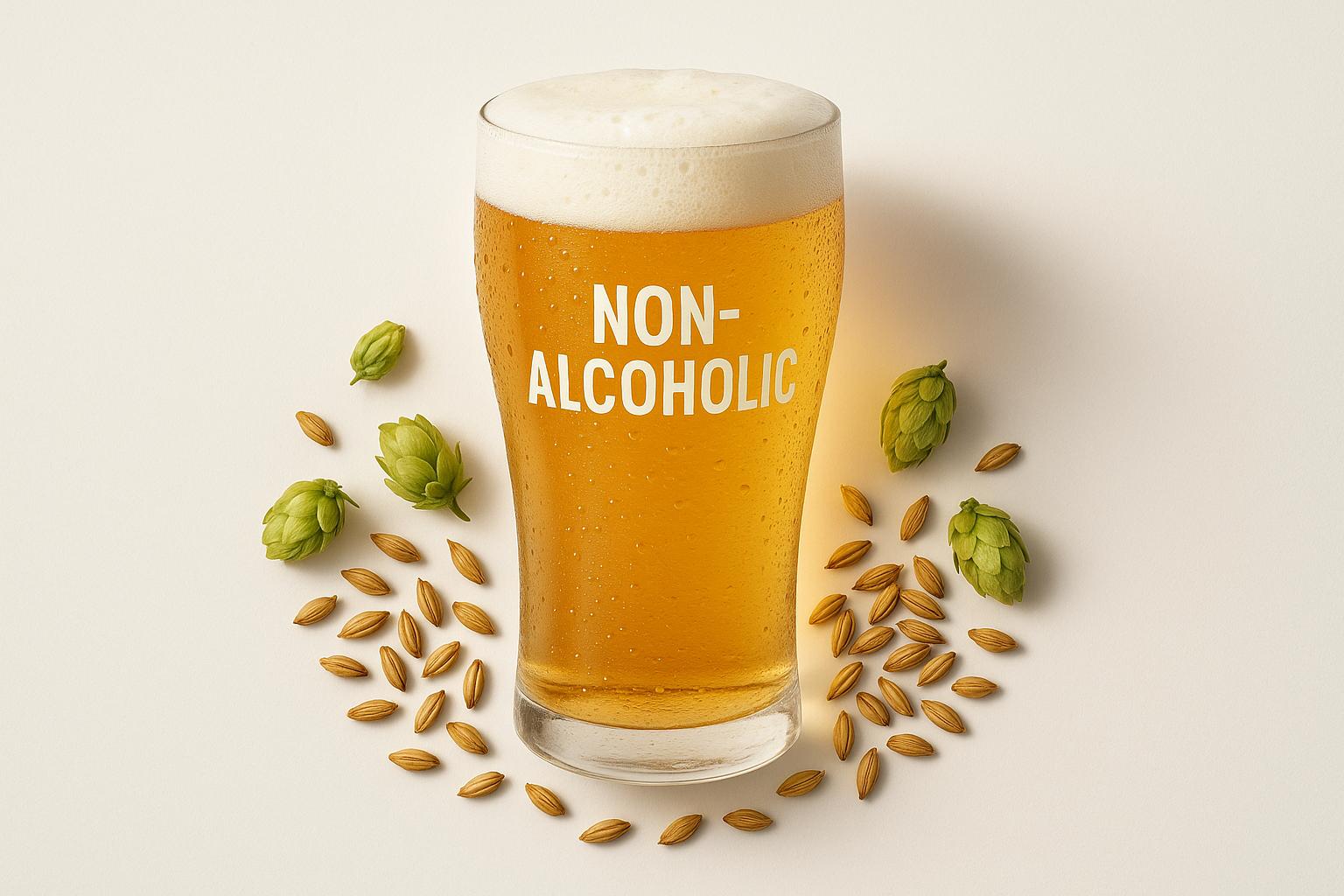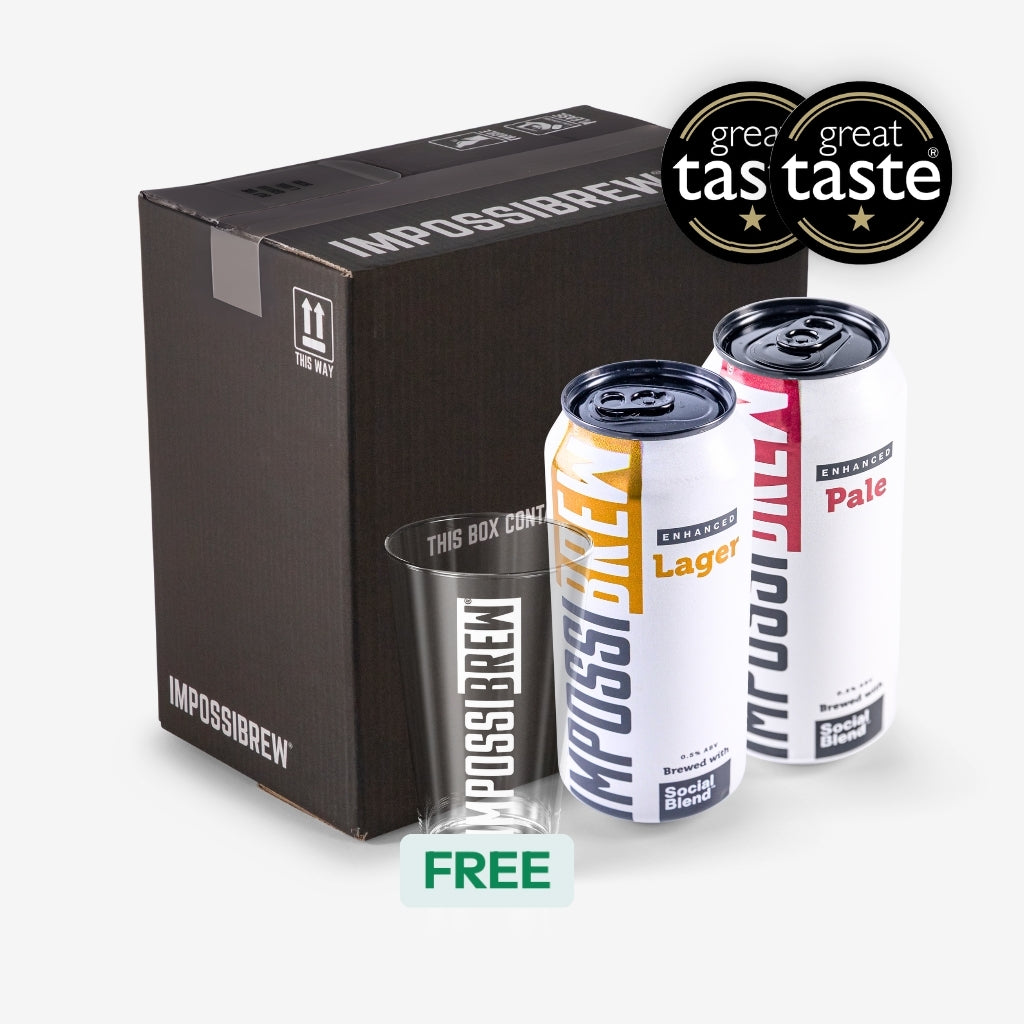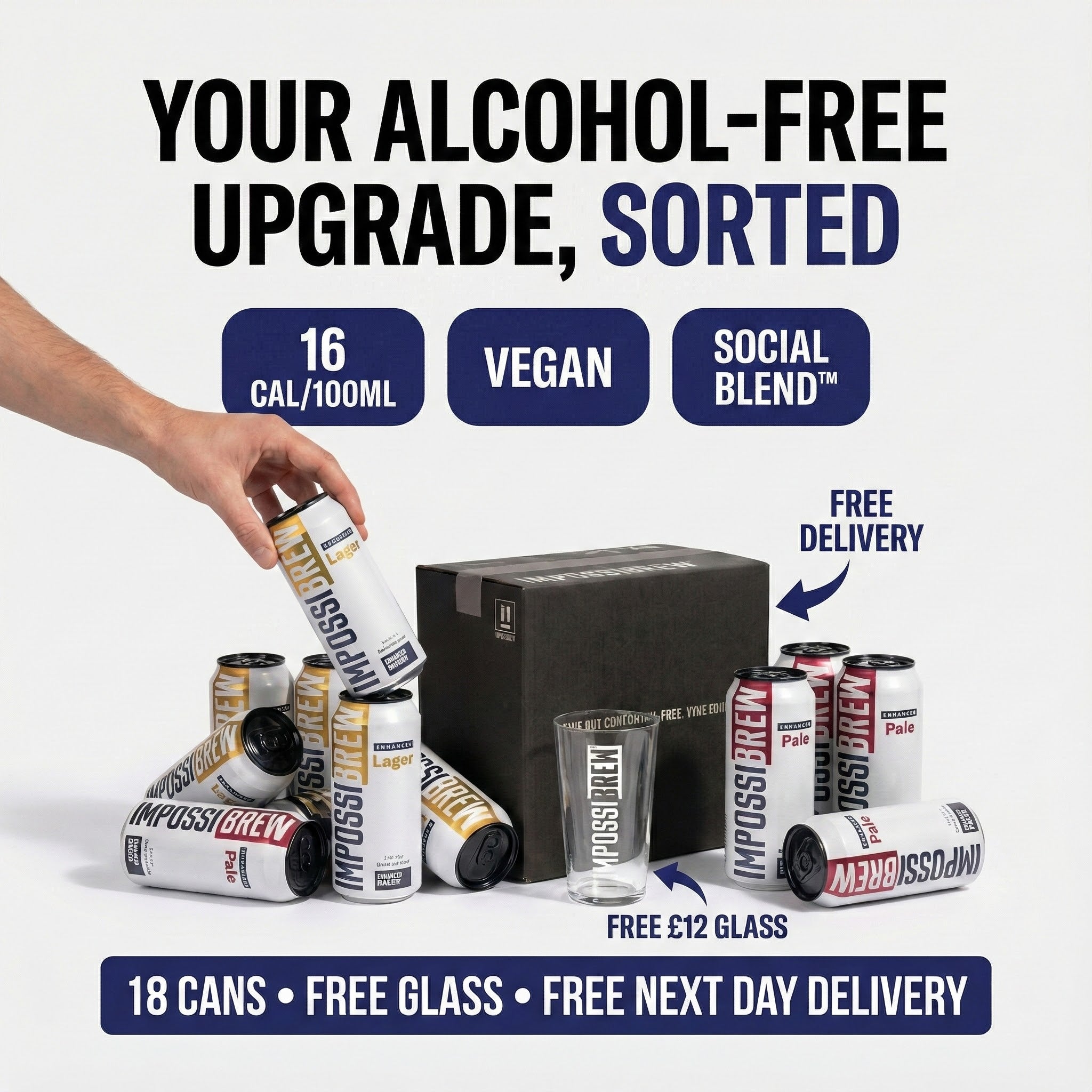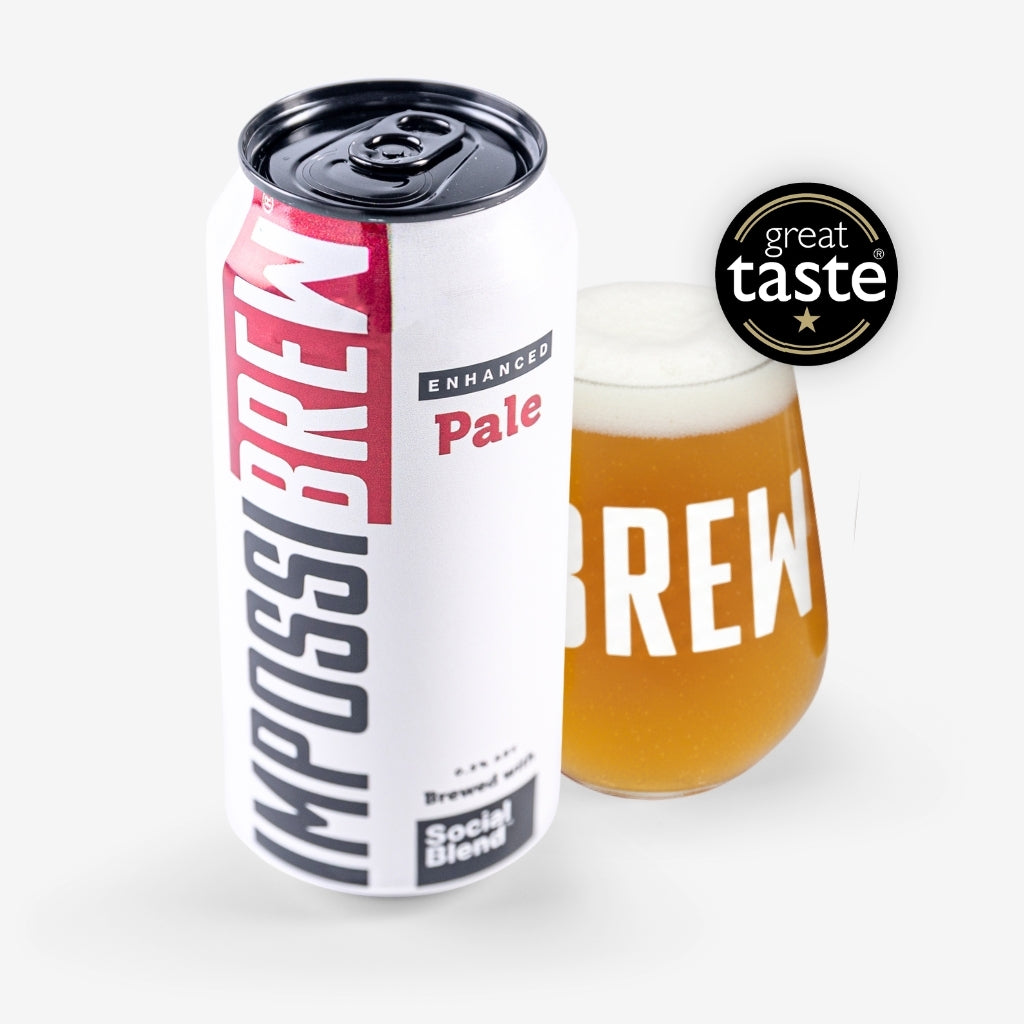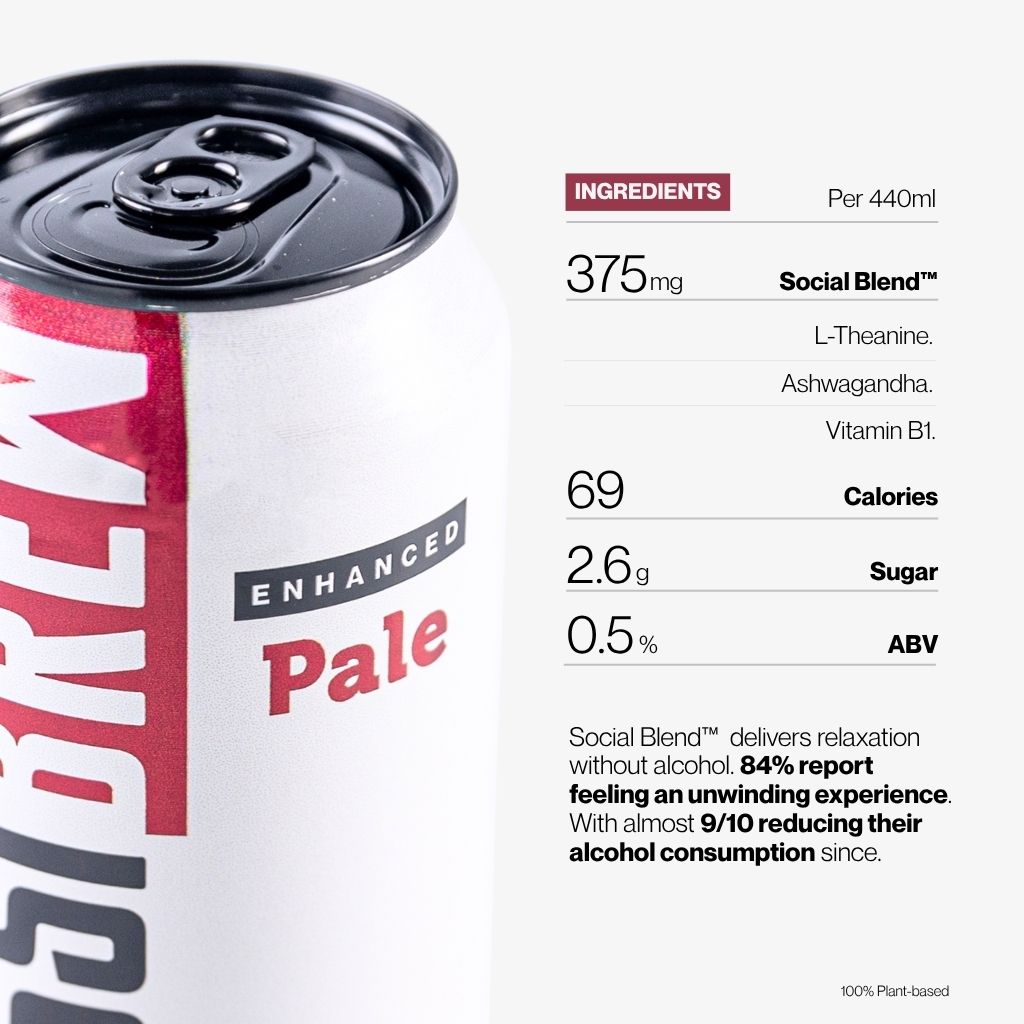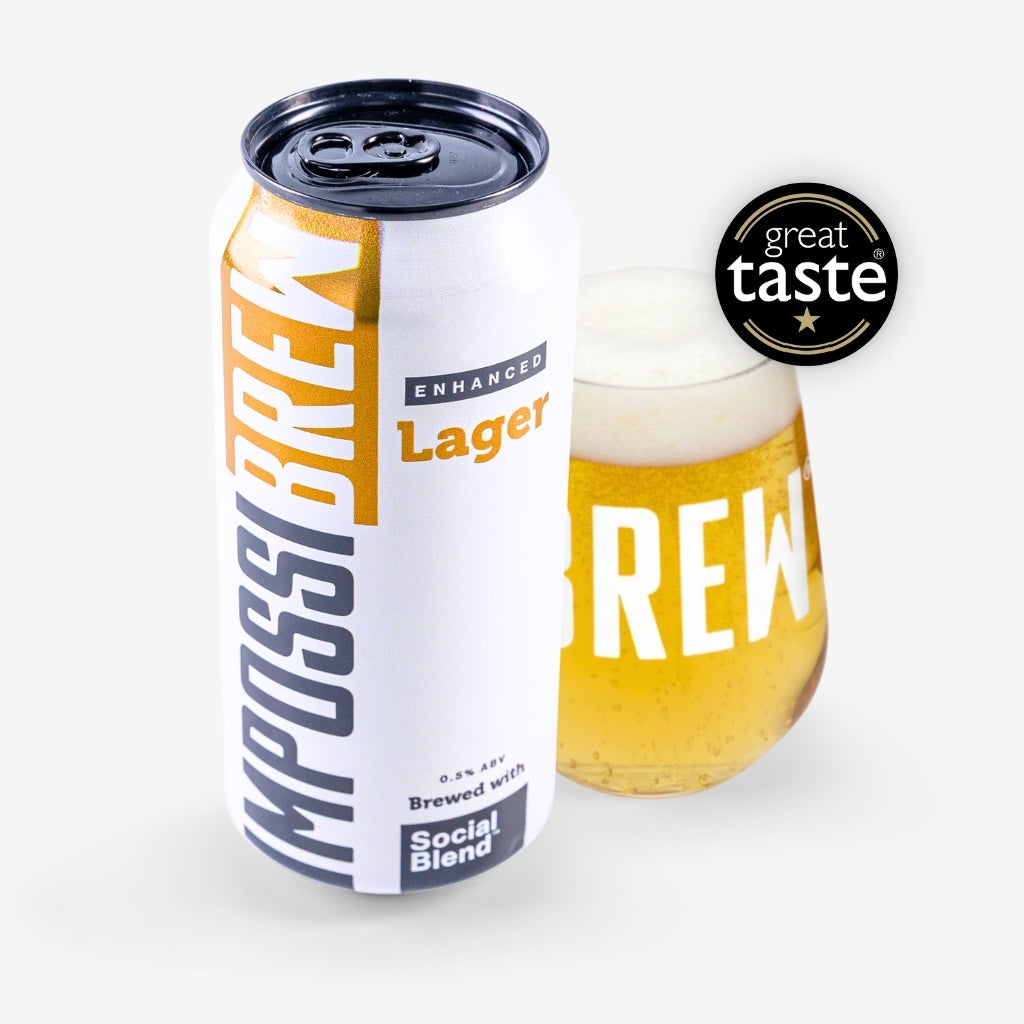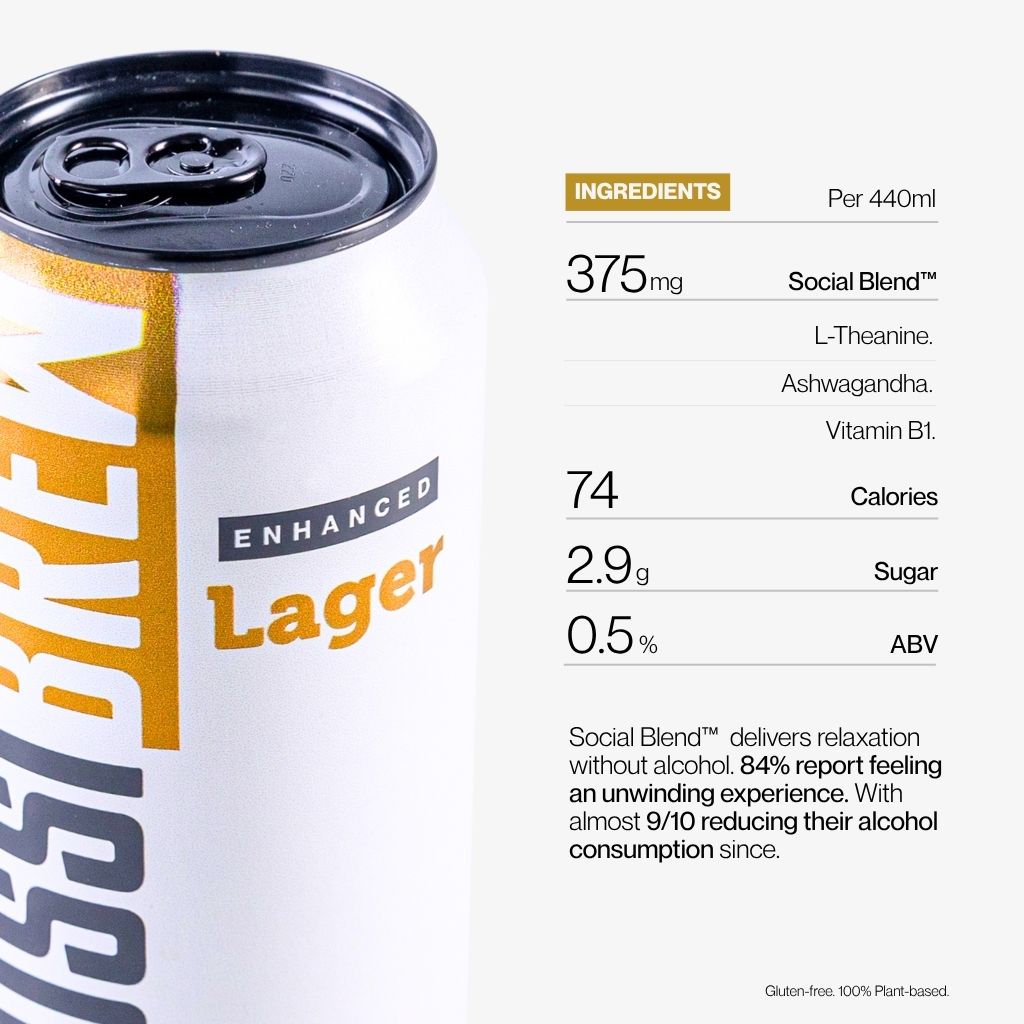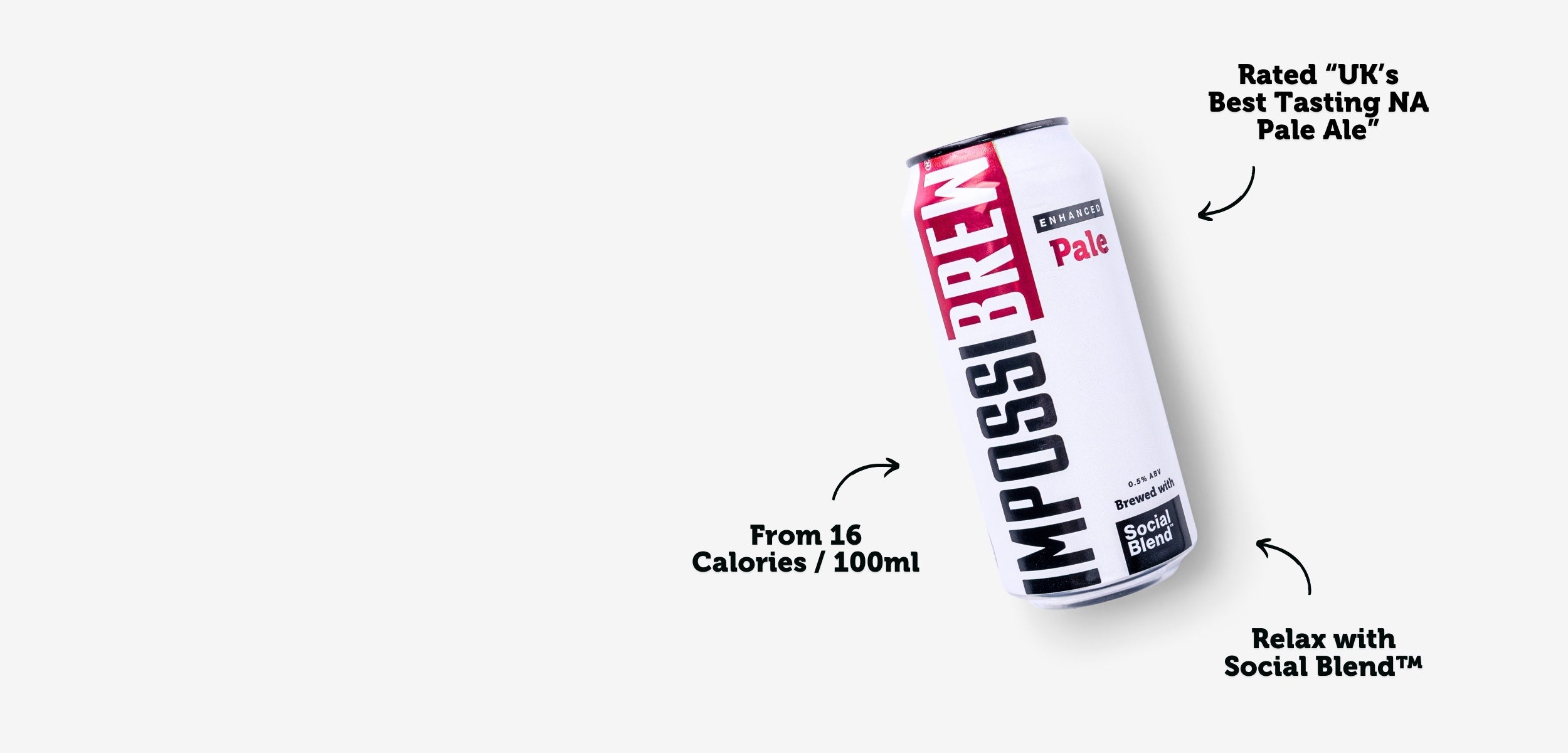- Ingredient Safety: All ingredients must meet safety standards. Novel foods (not widely consumed before 15 May 1997) require authorisation.
- Labelling Requirements: Labels must clearly list allergens, nutritional information, and ingredient details in English with proper font sizes.
- Marketing Rules: Health claims must align with the Great Britain Nutrition and Health Claims (NHC) Register. Avoid claims that suggest curing or treating medical conditions.
- Regulatory Oversight: The Food Standards Agency (FSA), Medicines and Healthcare products Regulatory Agency (MHRA), and Advertising Standards Authority (ASA) enforce these rules.
- Packaging Standards: Labels must be legible, durable, and include recycling instructions to comply with packaging laws introduced after 2023.
Key takeaway: Compliance isn't just about following the law - it's about ensuring consumer safety and trust in a competitive market.
UK Regulatory Standards for Nootropic Beverages
The UK has a detailed regulatory system for nootropic beverages, shaped by ingredient composition, product claims, and intended use. Navigating these rules is essential for compliance. Since Brexit, the UK has established its own distinct standards, separate from EU regulations, with a risk-based approach that applies stricter oversight to products with higher potential risks. Several regulatory bodies ensure these standards are enforced across different areas of nootropic beverage regulation.
Key Regulatory Bodies
The Food Standards Agency (FSA) plays a central role in overseeing nootropic beverages in England, Wales, and Northern Ireland, while Food Standards Scotland handles these responsibilities north of the border. The FSA focuses on ensuring ingredient safety and managing novel food applications. Ingredients not widely consumed before a specific cut-off date must receive novel food authorisation before being used.
Local Trading Standards authorities are responsible for enforcement on the ground. They investigate consumer complaints, conduct product testing, and can issue prohibition notices if products fail to meet regulatory requirements.
If a nootropic beverage claims to prevent or treat medical conditions, the Medicines and Healthcare products Regulatory Agency (MHRA) steps in. Such products require a medicines licence, and the MHRA determines whether a product is classified as a medicine or not.
The Advertising Standards Authority (ASA) oversees marketing claims for nootropic beverages. It takes a particularly firm stance on claims related to cognitive enhancement, ensuring that advertising practices remain within strict guidelines.
Legal Definitions and Classifications
Nootropic beverages in the UK fall into three main categories, each with its own regulatory requirements:
- Food products: These are beverages that avoid specific health claims and use only approved ingredients. They must comply with general food safety laws, such as the Food Safety Act 1990 and retained EU food regulations. Labelling for these products focuses on ingredients, allergen information, and basic nutritional details.
- Food supplements: Many nootropic beverages are classified here. Designed to supplement the diet, they are sold in measured doses and fall under the Food Supplements Regulations 2003. Labelling must include serving sizes, warnings, and approved ingredients. Any novel ingredients require separate authorisation before use.
- Medicinal products: Beverages that claim to prevent, treat, or cure medical conditions are subject to the Human Medicines Regulations 2012. This classification involves a rigorous and often expensive licensing process, which most manufacturers aim to avoid by steering clear of explicit medicinal claims.
Accurate classification is essential for compliance. For instance, a drink containing L-theanine marketed as promoting "relaxation" might be classified as a food supplement. However, if the same product claims to "treat anxiety", it would likely be regulated as a medicine. The MHRA advises that products enhancing physiological functions can remain in the food category, provided they do not make medicinal claims.
How a product is marketed, packaged, and sold also influences its classification. For example, a beverage presented with pharmacy-style packaging or dosage instructions might be deemed medicinal, even if its ingredients don't warrant that classification.
Manufacturers like IMPOSSIBREW® (https://impossibrew.co.uk) are committed to meeting these stringent regulations. By doing so, they ensure consumer safety and maintain trust in their products.
Ingredient Approval and Compliance Checklist
Getting ingredients approved is a key step in meeting compliance standards. Every ingredient must go through a detailed review process before it can be used in production.
Ingredient Safety and Novel Food Approval
The first step is to check if an ingredient needs to be classified as a "Novel Food." According to regulations, an ingredient falls under this category if it wasn’t widely consumed in the UK or EU before 15 May 1997 [1][2]. This includes entirely new foods, ingredients from international sources, or those made using innovative methods [1][2]. Proper classification ensures compliance with standards in both the UK and Northern Ireland.
In Great Britain, the Food Standards Agency (FSA) is responsible for authorising novel foods [1][2][3][4]. However, under the Northern Ireland Protocol, EU laws apply, meaning novel foods there must adhere to EU regulations and authorisations [1][2][3][4].
To ensure compliance, refer to the official registers. For Great Britain, you can consult the UK Food Standards Agency's novel food register at https://data.food.gov.uk/regulated-products/novel_authorisations [1][2]. Finally, gather and verify all necessary documentation to substantiate your ingredient safety claims.
Labelling Requirements for Nootropic Beverages
In the UK, nootropic beverages must adhere to strict allergen labelling rules. If any of the 14 regulated allergens - such as celery, cereals containing gluten, crustaceans, eggs, fish, lupin, milk, molluscs, mustard, tree nuts, peanuts, sesame seeds, soybeans, or sulphur dioxide and sulphites (over 10 parts per million) - are present as ingredients or processing aids, they must be clearly declared and emphasised in the ingredient list. This detailed labelling is essential for ensuring consumer safety and maintaining trust.
Permitted Claims and Marketing Practices
When it comes to nootropic beverages, ensuring your marketing claims align with UK regulations is just as important as meeting labelling and ingredient standards. Staying within these rules not only secures market access but also helps you steer clear of legal trouble.
Authorised Health and Nutrition Claims
In the UK, all health and nutrition claims for nootropic beverages must comply with the Great Britain Nutrition and Health Claims (NHC) Register. This register is your go-to resource for understanding what you can - and cannot - say about your product. It provides a clear list of approved claims while also identifying those that are outright rejected.
For example, if you're making claims about cognitive benefits, such as "reduces the risk", you must use the exact phrasing from the register. Similarly, any functional claims about ingredients like vitamins, minerals, or botanical extracts must match the approved language.
Since the NHC register is updated regularly, it's essential to double-check the latest guidelines before rolling out any marketing campaigns.
Prohibited Claims
One of the biggest regulatory red flags is making claims that suggest your nootropic beverage can prevent, treat, or cure diseases. Doing so would categorise your product as medicinal, subjecting it to an entirely different set of rules.
As of February 2025, the NHC register has expanded its list of prohibited claims. For instance, claims related to beta-glucan (003UKNHCC), creatine (004UKNHCC), and certain lutein combinations (001UKNHCC) are now disallowed [5]. Since nootropic beverages often sit in a regulatory grey area, the language you use is critical. Phrases like "treats brain fog", "cures memory problems", or "prevents cognitive decline" are clear violations. Instead, focus on structure-function claims that describe normal bodily processes without overstepping the line.
Also, steer clear of using exaggerated language that implies your product is the best or guarantees results for everyone. Such claims usually lack the scientific backing required to meet regulatory standards.
Disclaimers and Supporting Evidence
Every functional claim must be backed by solid scientific evidence, such as peer-reviewed studies, clinical trials, or recognised assessments. Additionally, include a disclaimer clarifying that individual results may vary and that the product is not a substitute for medical advice.
It's essential to maintain thorough documentation of the evidence supporting your claims, the reasoning behind them, and any regulatory communications. This isn't just important for initial approval - it’s also crucial for ongoing compliance and market surveillance. Keep in mind that your evidence should directly relate to your product's specific formulation and dosage. General studies on individual ingredients might not be enough.
sbb-itb-a752bf8
Packaging and Presentation Standards
Your packaging is more than just a container; it’s the first impression your nootropic beverage makes on consumers. Beyond adhering to legal requirements, it plays a key role in building trust and standing out in the competitive UK market.
Labelling Legibility and Language
Labelling isn't just about ticking boxes for compliance - it's about ensuring clarity and trust. The Food Information Regulations 2014 set clear rules for font sizes: mandatory information must use a font size with an x-height of at least 1.2mm for lowercase letters. For smaller packages (largest surface area under 80cm²), this drops to 0.9mm.
Labels must also be durable, staying intact and readable during transport and storage. This is especially crucial for nootropic beverages, which often contain sensitive ingredients requiring specific handling and storage conditions.
All mandatory information - including ingredient lists, nutritional details, and allergen warnings - must be in English. While additional languages can be included, English must remain prominent and easy to find. To enhance readability, ensure text contrasts well with the background and avoid placing it in obstructed areas.
An organised layout is just as important. Key details like the product name, ingredients, and allergen warnings should be easy to locate, helping consumers make informed choices quickly. These labelling standards are a foundation for meeting broader packaging and environmental regulations.
Environmental Considerations
Sustainability is no longer optional - it’s a priority in UK packaging regulations. Clear recycling instructions and proper material labelling are essential for supporting eco-friendly disposal.
For example, plastic bottles should display the resin identification code within the recycling symbol, glass containers need the appropriate glass recycling marker, and metal caps should have their own identification. These details guide consumers and recycling facilities alike.
The Packaging Recovery Note (PRN) system plays a central role in environmental compliance. While this primarily impacts producers and importers, it’s worth considering how your packaging design supports efficient recycling. Avoid using materials that are hard to separate, like mixed plastics or non-removable metal parts, as these complicate recycling processes.
Extended Producer Responsibility (EPR), introduced in 2023, adds further responsibilities to packaging design. Materials should minimise environmental harm while still protecting the product. Striking a balance between durability and recyclability is key. Additionally, consider the capabilities of local authority collection systems - packaging that aligns with most UK recycling infrastructures is more appealing to eco-conscious consumers and may reduce EPR fees.
Highlighting the environmental benefits of your packaging can also set your product apart. For instance, share details about recycled material percentages or carbon-neutral shipping practices directly on the packaging.
Lastly, be mindful of the Plastic Packaging Tax, which came into effect in April 2022. This applies to packaging with less than 30% recycled plastic. For nootropic beverages in plastic containers, this presents both a compliance challenge and an opportunity to showcase your commitment to sustainability by increasing recycled content.
Best Practices for Building Consumer Trust
Earning consumer trust requires more than just ticking regulatory boxes - it’s about creating a sense of openness that resonates with today’s informed UK buyers. The nootropic beverage market is booming, especially among younger consumers who actively research brands and scrutinise ingredients before making their choices [6].
Transparency on Ingredient Sourcing
UK consumers want more than just a list of ingredients - they want to know where those ingredients come from and how they’re sourced. For instance, if your product contains L-theanine, highlight that it’s derived from specific tea-growing regions using methods that preserve its effectiveness. Adding details about third-party testing, quality certifications, and sustainable farming practices shows your dedication to both quality and responsibility.
Digital tools like QR codes can make this level of transparency easy to access. By scanning the code, consumers can view detailed ingredient profiles, lab test results, and supplier certifications without cluttering your packaging. Sharing information about ethical sourcing and environmentally-friendly practices strengthens trust with buyers who care about responsible supply chains.
If you’re using standardised extracts, make sure to explain the active compounds they contain. This kind of transparency not only supports the product’s credibility but also lays the groundwork for clear usage instructions.
Clear Usage Guidance
Once you’ve established trust through ingredient transparency, the next step is to provide clear instructions for use. Explain that these beverages are designed to support sustained mental clarity, rather than delivering the quick energy spikes associated with traditional energy drinks.
Offer specific guidance, such as recommending consumption 30 minutes before a mentally demanding task. If the formula includes stimulating ingredients, advise users to avoid drinking it within four hours of bedtime. Include tips on how to incorporate the beverage into daily routines, address potential interactions with medications or other supplements, and always encourage consumers to consult healthcare professionals. Setting realistic expectations about gradual, steady benefits helps build long-term trust and minimises the risk of disappointment.
Front-of-Pack Labelling Features
The front of your packaging is a prime opportunity to communicate trust and value at a glance. Use simple nutrient icons, concise benefit statements, and certification badges to give consumers instant clarity about your product. For example, highlight key nootropics like “L-theanine for calm focus” or “lion’s mane mushroom extract for clarity.”
Make third-party certifications - such as organic, non-GMO, or quality testing seals - highly visible to demonstrate your commitment to high standards. Including effect timing indicators, like “Morning Focus” or “Afternoon Clarity,” provides additional context for when the beverage is best used. Transparency badges, such as “Full Ingredient Disclosure,” “Third-Party Tested,” or “Traceable Sourcing,” further emphasise your openness.
These front-of-pack features not only meet labelling standards but also appeal to younger, tech-savvy consumers who value instant access to detailed product information. By combining clarity with transparency, you can strengthen consumer trust and stand out in a competitive market.
Ensuring Compliance and Consumer Confidence
For nootropic beverages, compliance isn't just a box to tick - it's the backbone of building trust and securing long-term success in the UK's growing functional beverage market. By making compliance a priority, brands can create products that consumers feel confident about, driving sales and strengthening loyalty in this competitive space. Here's how compliance can become a powerful advantage.
Think of a compliance checklist as your go-to guide for every stage, from securing ingredient approvals to accurate labelling. Keeping detailed records - like ingredient certifications, supplier credentials, and results from third-party testing - not only ensures you meet regulatory demands but also helps build trust. If questions arise about a product's safety or effectiveness, having this documentation on hand reassures both regulators and consumers.
The UK market for nootropic beverages is expanding rapidly [6], offering exciting opportunities for brands that put compliance at the forefront. Beyond meeting legal requirements, transparency plays a huge role in boosting consumer confidence. UK buyers today care deeply about what they’re consuming and want to understand the "why" behind it. Brands that openly share details about ingredient sourcing, production methods, and labelling stand out. With the rise of movements like "sober-curious" and a growing focus on mindful consumption, compliance becomes more than just a necessity - it’s a way to exceed expectations for quality, clarity, and ethical standards. When your compliance efforts align with these values, they transform from a regulatory obligation into a strategic advantage. Regular audits not only help you stay ahead of potential issues but also reinforce consumer trust in this flourishing market.
FAQs
What distinguishes food products, food supplements, and medicinal products in relation to nootropic beverages?
The key differences between food products, food supplements, and medicinal products come down to their purpose, how they’re regulated, and the way they’re marketed.
- Food products are created for everyday consumption, focusing on providing nutrition and enjoyment. They don’t claim to offer any specific health-related benefits.
- Food supplements are designed to add concentrated nutrients - like vitamins, minerals, or herbal extracts - to a person’s diet. While they’re regulated as foods, they’re not allowed to claim they can cure or prevent diseases.
- Medicinal products are specifically formulated to diagnose, treat, or prevent illnesses. These products contain active pharmaceutical ingredients, undergo rigorous regulatory approval, and may require a prescription.
When it comes to nootropic beverages, these distinctions directly impact how they’re labelled, marketed, and consumed. For instance, if a nootropic drink is sold as a food supplement, it must follow the rules for supplement labelling and avoid making any medicinal claims.
What steps can manufacturers take to ensure their nootropic beverage claims comply with UK regulations?
Manufacturers of nootropic beverages in the UK need to ensure their marketing claims align with strict regulations. Here’s how they can stay on the right side of the law:
- Steer clear of unauthorised health claims: Marketing statements that imply a product can prevent, treat, or cure diseases are strictly off-limits unless they’re explicitly authorised and appear on the EU Register.
- Stick to approved claims: Any nutritional or health-related claims must be backed by solid evidence, presented accurately, and free from exaggeration.
- Adhere to advertising standards: Promotional materials must be truthful, transparent, and in line with advertising rules, especially when it comes to restrictions on marketing less healthy products in digital and broadcast platforms.
By following these guidelines, manufacturers can not only ensure regulatory compliance but also foster trust among their customers.
What steps are required to get approval for a novel ingredient in a nootropic beverage in the UK?
To bring a new ingredient into a nootropic beverage in the UK, you’ll need approval from the Food Standards Agency (FSA) under the Novel Foods Regulation. This requires submitting a pre-market safety assessment, complete with detailed scientific evidence to demonstrate the ingredient is safe for consumption.
Since Brexit, the UK operates its own regulatory framework, separate from the EU. The FSA is now responsible for reviewing and approving novel foods, ensuring they meet strict safety standards before hitting the market. Providing thorough scientific data and adhering to all relevant guidelines is key to securing approval.

